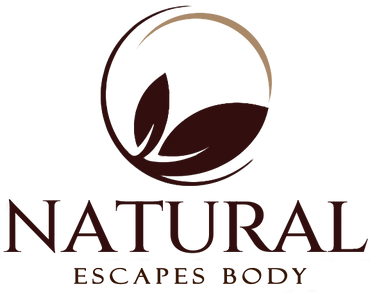The Benefits of Panthenol (Vitamin B5) for Hair & Skin
Quick Facts
- Botanical / Chemical Name: D-Panthenol (Dexpanthenol) / DL-Panthenol
- INCI Name: Panthenol
- Extract Type: Synthetic analog of Vitamin B5 (Pro-Vitamin B5)
- Benefits: Skin barrier repair, wound healing support, deep moisturization, anti-inflammatory, hair strengthening, scalp soothing
- Best Uses: Sensitive skin care, post-procedure recovery, hydrating skincare, hair repair and growth support, daily moisturizers
Panthenol, also known as Pro-Vitamin B5, is one of skincare’s most trusted and versatile ingredients. When applied topically, it converts to pantothenic acid (Vitamin B5), which plays a vital role in skin repair, hydration, and overall health. Its ability to function as both a pro-vitamin and an immediate-acting moisturizer makes it a staple in formulations designed for sensitive, dry, and post-procedure skin, as well as in hair care products for strengthening and conditioning.
What the Science Says
- Topical application of panthenol converts to pantothenic acid, supporting Coenzyme A synthesis for essential skin barrier lipids[1].
- Clinical studies show accelerated wound healing, reduced inflammation, and stronger barrier recovery after irritation[2][5].
- Moisturization studies confirm reduced transepidermal water loss and increased hydration at concentrations of 1–5%[3].
- Hair research demonstrates improved follicle cell viability, reduced damage markers, and stimulation of growth factors[4].
Key Nutrients / Compounds
- D-Panthenol (Dexpanthenol): Most bioactive and well-researched form.
- Pantothenic Acid (Vitamin B5): Active vitamin essential for skin and cell metabolism.
- Coenzyme A Precursor: Supports fatty acid and sphingolipid synthesis for barrier integrity.
- Hydroxyl Group: Enables humectant activity and deep skin penetration.
- Water-Soluble Components: Easily incorporated into diverse formulations.
Skin Benefits
- Accelerates skin barrier repair
- Enhances wound healing and recovery
- Provides lasting hydration
- Reduces redness, irritation, and inflammation
- Strengthens compromised, sensitive, or post-procedure skin
Hair & Scalp Benefits
- Strengthens hair fibers and reduces breakage
- Improves shine, softness, and manageability
- Supports follicle health and hair growth
- Soothes dry, itchy, or irritated scalp
Why Natural Escapes Body Uses It
At Natural Escapes Body, we love Panthenol for its unmatched ability to hydrate, soothe, and repair. It’s a trusted ingredient in our formulations for sensitive and dry skin, and we also rely on it to strengthen and nourish hair in our natural care products. Its versatility and proven safety make it one of our go-to actives for holistic skin and hair wellness.
Products Featuring This Ingredient
- Hydrating body lotions
- Hair Repair Shampoos
- Hair Repair Conditioners
Safety Notes
- Comedogenicity: Non-comedogenic, does not clog pores
- Patch Testing: Recommended, though allergic reactions are very rare
- Safe For: Sensitive skin, children, pregnancy, and daily use
- Concentration: Safe up to 5% in topical formulations
- Regulatory: Approved globally with excellent safety record
FAQs
Is Panthenol safe for sensitive skin?
Yes, Panthenol is gentle, soothing, and widely recommended for sensitive and post-procedure skin care.
Can Panthenol help with acne?
Panthenol is non-comedogenic and helps reduce inflammation, making it suitable for acne-prone skin, though it is not an acne treatment.
Is Panthenol safe during pregnancy?
Yes, it is naturally present in the body and safe to use during pregnancy and breastfeeding.
Does Panthenol work better for skin or hair?
Panthenol benefits both. It strengthens skin’s barrier while also improving hair’s softness, shine, and strength.
Scientific References
- Safety Assessment of Panthenol, Pantothenic Acid, and Derivatives as Used in Cosmetics. International Journal of Toxicology, 2022.
- Dexpanthenol in Wound Healing after Medical and Cosmetic Interventions. Pharmaceuticals, 2020.
- Topical use of dexpanthenol: a 70th anniversary article. Journal of Dermatological Treatment, 2017.
- Dexpanthenol Promotes Cell Growth by Preventing Cell Senescence and Apoptosis in Cultured Human Hair Follicle Cells. Current Issues in Molecular Biology, 2021.
- Dexpanthenol enhances skin barrier repair and reduces inflammation after sodium lauryl sulphate-induced irritation. Journal of Dermatological Treatment, 2002.
- Vitamin B5 (Pantothenic Acid). StatPearls, 2024
- Panthenol: Uses, safety, and risks. Medical News Today, 2022

